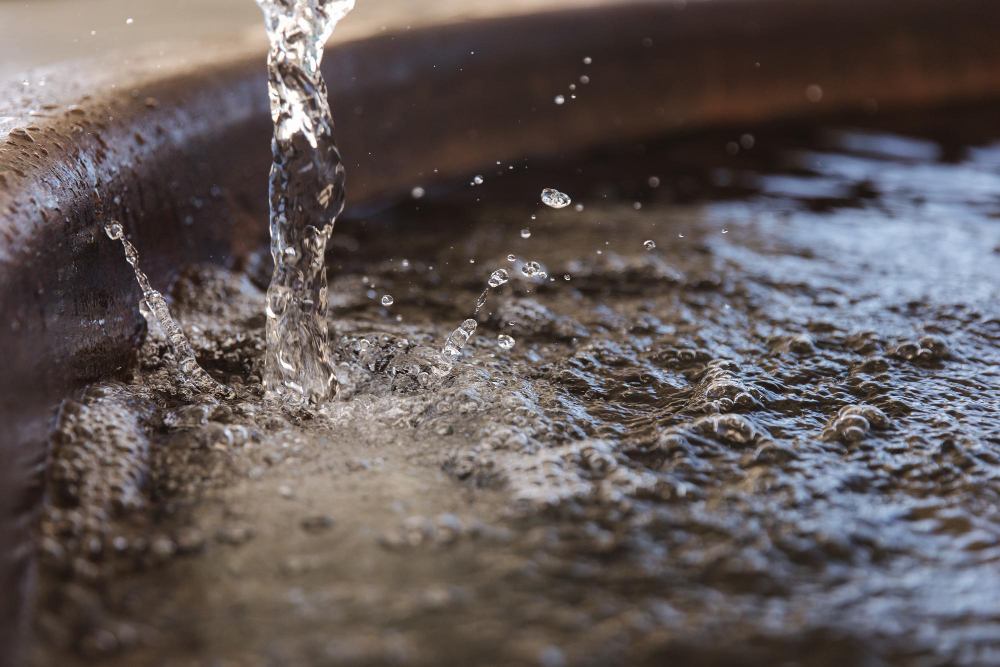
January 18/2024
Ways We Waste Water
There are many ways homeowners and businesses waste water every day without realizing it. The average American household wastes a staggering 9,400 gallons of water per year from leaks alone, according to the US Environmental Protection Agency (EPA). Thankfully, there are measures you can take to conserve water without compromising your comfort or cleanliness. If you’re wondering how to conserve water in your home, Mr. Rooter Plumbing shares 8 ways you may be wasting water.
- Taking Baths And Long Showers
Although baths and long showers can be relaxing, they may be significantly contributing to water waste. An average bath fills with around 40 gallons of water, while a 10-minute shower uses about 25 gallons. To conserve water, you should aim for shorter showers (under 5 minutes) and install a low-flow showerhead to reduce water use without compromising pressure.
- Using Your Toilet As A Trash Can
Toilets account for about 30% of the average household’s indoor water usage, making them the biggest water guzzler in most homes. Every time you flush non-flushable items like tissues, paper towels, and even food scraps, you waste 5-7 gallons of water. The solution is to use a wastebasket for non-flushable items, compost food scraps, and educate others about what should and shouldn’t be flushed.
- Conventional Showerheads And Toilets
Older, inefficient showerheads and toilets use much more water per flush or shower compared to newer, high-efficiency models. A standard toilet can use up to 3.5 gallons per flush, while a high-efficiency toilet uses only 1.28 gallons. Older showerheads can use 2.5 gallons per minute, while low-flow models use 2 gallons per minute. Upgrading to high-efficiency showerheads and toilets can significantly reduce water usage. If your plumbing fixtures have seen better days, it’s best to have a qualified plumbing service make upgrades.
Even small leaks can waste gallons of water every day. A faucet leaking one drip per second can waste up to 2,000 gallons of water per year. It’s recommended to regularly check for leaks around faucets, pipes, and toilets. If you notice signs of a water leak, contact a nearby plumbing repair service for leak detection and repair.
- Running Laundry Loads That Are Only Half Full
Washing machines use a significant amount of water per cycle, regardless of the load size. Running half-full loads wastes water and energy. It’s advisable to wait until you have a full load before running the washing machine. Some machines have settings for smaller loads, so use those when necessary. Consider hand-washing smaller items instead of running a partially full machine.
- Running A Dishwasher That’s Not Completely Full
While newer dishwashers are more efficient, they still use a significant amount of water per cycle. Running them with half loads wastes water and energy. You should wait until you have a full load before running the dishwasher, or if you need to run it sooner, use a “half-load” or “light-wash” setting if available.
- Washing Dishes With Running Water
Letting the faucet run while scrubbing dishes uses significantly more water than filling a sink or basin. It’s best to turn off the faucet while soaping and scrubbing dishes and only turn it on to rinse briefly. Alternatively, fill a basin with soapy water and use that to wash dishes, then rinse them in another basin or under a controlled flow of water.
- Running The Water While Brushing Your Teeth
This is one of those unconscious habits that can turn out to be expensive in the long run. Leaving the faucet running while brushing your teeth can waste gallons of water per day. Turn off the faucet while brushing your teeth, and only turn it on briefly to rinse. Fill a glass with water to use for rinsing instead of letting the faucet run.
Need Help With Conserving Water? Call Mr. Rooter Plumbing Today
At Mr. Rooter Plumbing, we are committed to helping homeowners and businesses conserve water while also saving money. Whether you have a plumbing leak that needs fixing or need professional advice on how to save water in your home, our experienced plumbers are ready to help. We are the go-to plumbing service for all of your residential and commercial plumbing needs, including leak detection, leak repair, drain cleaning, garbage disposal repair, faucet repair, and more. Contact us today to schedule an appointment and start saving water.




